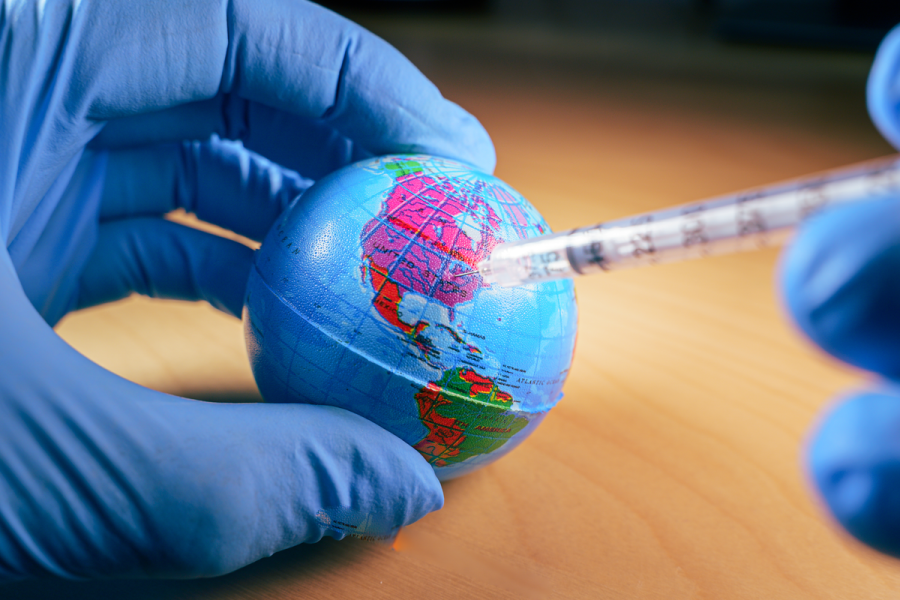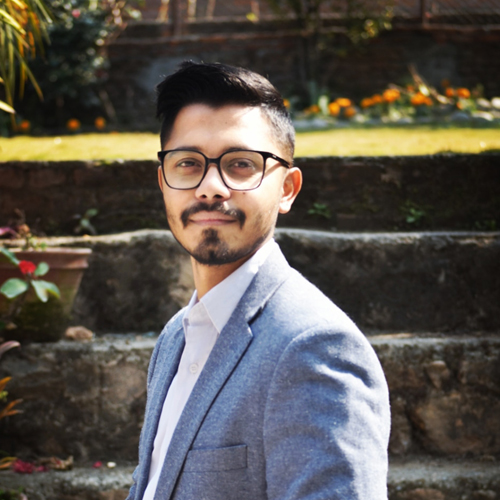Columns
Patent rights or saving lives
Countries and pharmaceutical giants should think beyond their vested interests.
Sushrey Nepal
Countries began the year 2021 with a unanimous vow to end the Covid-19 pandemic, which the world has been grappling with for a year. The crisis brought about by the raging novel coronavirus has reached boiling point, and more than 4,000 Nepalis have lost their lives. At such a time when the world needs exemplary leadership to deliver on global solidarity to counter this virulent pandemic, leaders are struggling to reach a consensus on waiving intellectual property (IP) right protection for vaccines and drugs even when time is of the essence, resulting in huge differences in vaccination rates in the developed and poorer countries. This pandemic has exposed the severe disproportionate distribution of resources among countries in terms of providing immunisation and medication against this highly infectious virus.
Today, as the world fights against the wrath of Covid-19, vaccines and drugs developed to combat this virus have been made subject to patent protection under the Trade-Related Aspects of Intellectual Property Rights Agreement of the World Trade Organisation (WTO). Patent holders have an exclusive right to manufacture, sell and distribute the vaccines for 20 years. India and South Africa had submitted a joint proposal to the WTO, which has now been supported by over a hundred countries, asking for a temporary waiver of patent on Covid-19 vaccines, medicines, diagnostic kits and protective gear. The United States government has declared its support for a patent waiver. Some countries have remained critical of this proposition, and maintain that suspending IP protection for vaccines is not a solution to filling the shortages, and that such a move will disincentivise innovation. WTO member countries are yet to begin negotiations on the matter as people continue to perish in the pandemic.
Exceptional circumstances
The Marrakech Agreement establishing the WTO has enabled a waiver of obligation on members in exceptional circumstances, but these ‘exceptional circumstances’ have not been defined. Nonetheless, it is to be understood that they include concrete and urgent situations causing hardships to member countries where compliance with WTO practices may not be feasible, and thus may need some relaxation. In such a situation, the WTO may make its compliance flexible, of course, with great care whereby such relaxation does not become an excuse for a country to evade its obligations, till such hardships are contained.
The Covid-19 pandemic is the worst crisis of the century causing both economic and health adversities like never seen before, and it is indeed a chain of ‘exceptional circumstances’. This makes a clear legal basis for the waiver of IP protection on Covid-19 vaccines and other technologies. The suspension of IP protection would enable economies around the world that have the resources and technical know-how to produce vaccines and drugs against Covid-19 and export them to countries like Nepal, that lack manufacturing resources and abilities, at a much cheaper rate.
Developed countries such as of the European Union, Switzerland, Australia, the United Kingdom and Japan have been reluctant on the IP waiver, and maintain that it has not in any way restricted production. Even though the US has supported patent relaxation, its premier vaccine provider has stated that it is ‘not at all’ in favour of a waiver. The decision of the US government has sent shockwaves in the stock market, and shares of leading pharmaceutical groups have plunged.
Waiving patent on Covid-19 vaccines will only be the first step to get the movement going towards the long war of eradication of the pandemic. IP waiver will definitely be a step in the right direction, but it is only a job half done. Transfer of technology and quality control are whole new dimensions of the issue that needs to be tackled cautiously. Waiver alone will not be enough, if adequate measures and mechanisms aren’t prescribed for a safe tech transfer and quality control, along with the addressing of trade restrictions and supply constraint issues.
A pressing risk that is tagged with an IP waiver is uncertainty about whether the quality and consistency of manufacturing can be maintained. Vaccines and drugs, by their very nature, have to be made under strict quality control, which is why it takes years for medicinal products to be approved. The journey of a vaccine from discovery to approval is an intricate one, a far more complicated procedure than just following a particular recipe. Possibly, once the IP right is waived on Covid-19 related vaccines and drugs, international bodies like the World Health Organisation may have a crucial regulatory role in assuring that quality and safety isn’t compromised. Also, even if companies are subsequently allowed to manufacture vaccines, they’d still have to run clinical trials before getting regulatory approvals, which means that an IP waiver in itself doesn’t assure speedy production.
Come together
The Covid-19 crisis warrants that the world comes together to spread and share innovation on vaccines and medicines to counter the virus. This pandemic has evidently pushed up demand for vaccines and drugs all over, meaning that the quicker the world stands united for inoculation against the virus, the better mileage the vaccination drive will get. This also assures that manufacturers will get an adequate return.
If people dying in the thousands does not form a needful circumstance where countries and pharmaceutical giants think beyond their vested interests for the sake of humanity, it is hard to imagine what will. Every possible measure that helps in the common fight against this pandemic must be expeditiously made a reality. It is imperative that the WTO begin formal negotiations on patent waiver at the earliest. Since the virus keeps mutating creating new variants, delays in inoculating the large populations of the developing countries will only worsen the already grim situation. To repeat a shared sentiment, no one will truly be safe until everyone is!




 22.59°C Kathmandu
22.59°C Kathmandu















